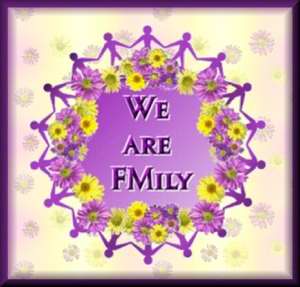

Privilege
and Prejudice:
Disabled Parking
with an Invisible Illness
![]()
As I got out of the car, a woman approached me. "I hope you feel good about parking there," she said sarcastically. I was caught off guard, and responded dumbly, "What?" and looked at her, not sure if I had heard her correctly. "I hope you're happy, " she said, "taking a space that's for the handicapped." My heart was beating furiously. "I do have a permit," I stammered. "Well, " she said, disdain all over her face, "you look like you can walk fine to me—you're about as handicapped as I am!" I was
stunned. I stood there mute, horrified, but unable to even defend
myself. It wasn't until she walked away that the tears began to
roll down my face. I started to think about all the things I could
have said—should have said—how I might have made her
understand. Instead, I felt ashamed—that my disability is not
apparent—and I felt
I now know that this happens to lots of people. I've heard many stories like mine about people with invisible disabilities who are accosted by "do-gooders" intent on protecting the rights of those for whom the parking spaces are reserved. In an essay in the Los Angeles Times, Connie Kennemer—who suffers from Multiple Sclerosis (MS) and had a similar confrontation—writes, "I feel violated by a self-righteous and judgmental society that narrowly defines disability. I am not in a wheel chair. My handicap is hidden. Do these facts eliminate the possibility that I share the same limitations as those who are visibly disabled?" For many with FMS or other invisible illnesses, that blue permit allows us to live our lives more "normally" by helping us complete seemingly easy tasks—like grocery shopping or a stop at the dry cleaners—that would otherwise be exhausting, extremely painful, or completely overwhelming. Says one writer who calls herself the Invisible Disabilities Advocate: "these spaces do not make life easy, they make it possible." Errands like these may seem trivial to some, but they are precious and essential to those of us who struggle with illness and disability on a daily basis. Writes Kennemer, "I want to shout at the world, 'give me a break! I'll give you this handy placard if you'll take my disease! Deal?'" While it may not be possible to make sure everyone is knowledgeable about invisible disabilities, we can take care of ourselves. Many people who sorely need a disabled parking permit hesitate to get one for fear of confronting the ignorant reactions of others. Others who do have permits hesitate to use the very privilege that was designed to assist them. Why do we feel ashamed? Wouldn't we readily give up this privilege if it meant having the health and energy we used to have? We must stop feeling guilty about our limitations, in order to do what we need to do to live the fullest lives we possibly can. If you feel you need a disabled parking permit, your doctor can usually help you with this; or contact the vehicle licensing agency in your state to find out how to apply.
In
all likelihood, I'll continue to wrestle with others' perceptions of my
apparent "good health." But the next time someone
confronts me and my blue placard, I'll be prepared. On this site's message
board a member posted about how they had a disability but
looked to be healthy. One day when she used her parking placard in a
handicapped space, a man approached her and said, "You certainly
don't look handicapped to me. You should not be parking in that
space." She replied, "And you, sir, look intelligent, but
I guess looks can be deceiving."
|
|
Chat
Schedule ~ ~ Rules and Guidelines |
© "We Are FMily" Fibromyalgia Support 2002
All original literary works within the "We Are FMily" website which bare
We Are FMily! name are protected under the seal of the Copyright Office
in accordance with Title 17, United States Code.
Absolutely no part of these literary works may be used,
reprinted or reproduced in any form.
The fact that they are distributed via the Internet does NOT
release them from their creator's copyright privilege.